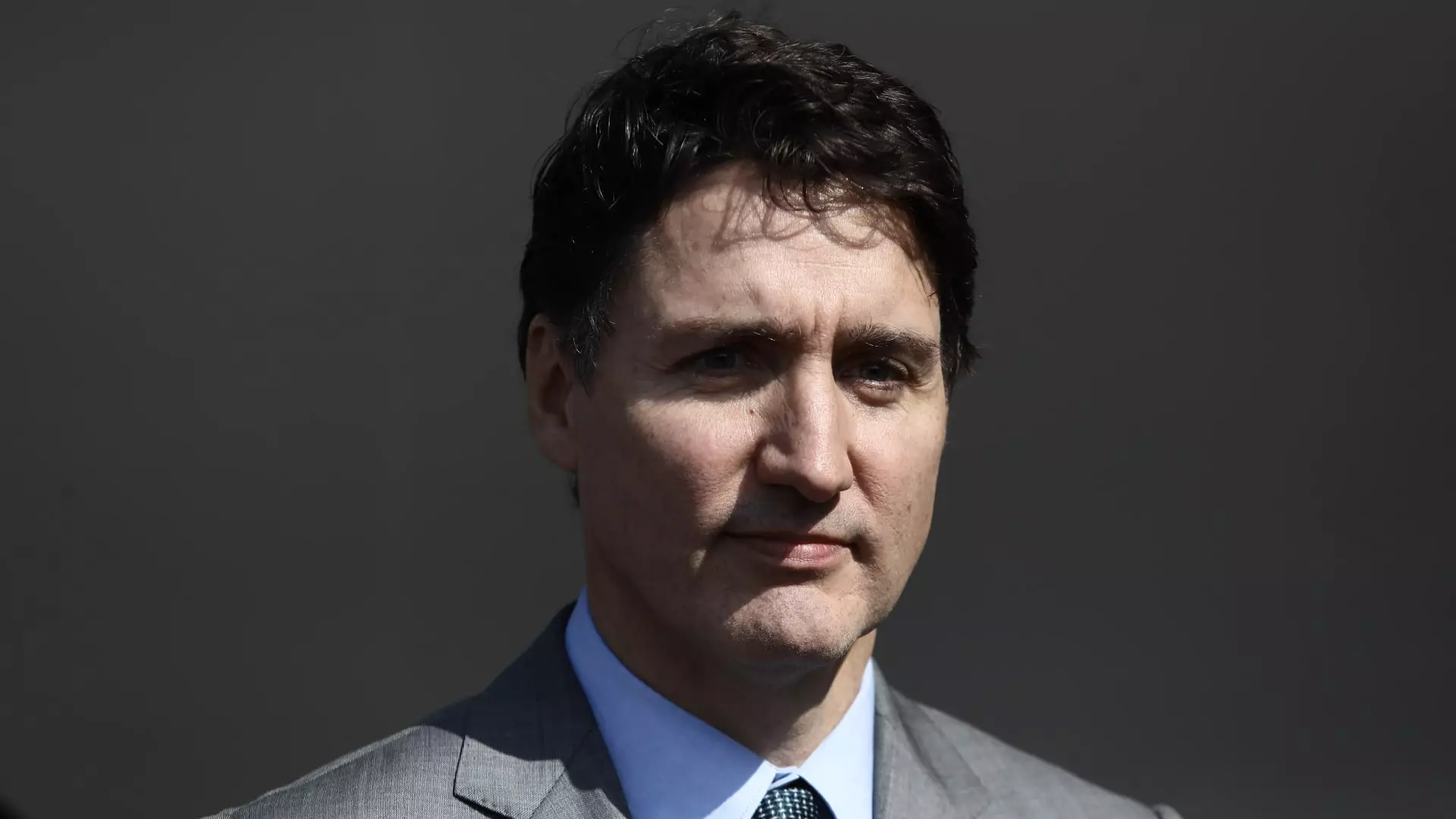The Canadian political landscape is facing potential upheaval as Prime Minister Justin Trudeau reportedly inches closer to announcing his resignation. Despite not having made an official decision, insiders suggest that Trudeau could declare his intention to leave the leadership of the Liberal Party as early as Monday, following a series of disappointing polls that have raised concerns within his party. The ramifications of such a decision could resonate throughout Canadian society, highlighting the deepening rifts within the Liberal Party and the challenges ahead in stabilizing the country’s governance.
Trudeau’s potential resignation comes at a precarious moment for the Liberal Party, which finds itself trailing significantly behind the official opposition, the Conservatives, in various polls. This looming electoral confrontation, mandated to be held by late October, is unsettling for a political party already reeling from internal dissatisfaction. Sources close to the situation indicate that several Liberal parliamentarians are increasingly vocal in their calls for Trudeau to step aside, emphasizing the urgent need for a change in leadership before the impending elections. Trudeau’s management of recent crises, coupled with a series of unfavorable public opinions, has intensified calls from within his ranks to reconsider his leadership.
While the Globe and Mail has speculated on the timing of Trudeau’s announcement, there remains significant ambiguity regarding whether he intends to resign immediately or maintain his role until his party selects a new leader. The upcoming emergency meeting of Liberal legislators is expected to be pivotal, potentially influencing Trudeau’s decision. Notably, the political trajectory of his potential successors, including a discussion involving Finance Minister Dominic LeBlanc, poses questions about interim leadership and the party’s readiness for immediate election campaigns.
The complexity of Trudeau’s political maneuvering reflects not only his precarious position but also his need to consider the implications of his departure on the party’s coherence and strategic direction. Would a swift transition to new leadership mitigate the damage already wrought by polling results, or would it create further instability? Such queries underscore the magnitude of Trudeau’s choice.
Trudeau’s leadership, which began with a promise of “sunny ways” and progressive ideals, has faced escalating challenges since his overwhelming victory in 2015. Initially, his administration was marked by ambitious policies aimed at advancing climate change initiatives and promoting gender equality. However, as Trudeau navigated the complexities of governance, the reality of constant crises, including the economic fallout from the COVID-19 pandemic, took a toll on his effectiveness.
His government poured funds into economic recovery and public support, significantly increasing national debt. However, these fiscal measures failed to quell mounting public discontent, particularly in light of spiraling consumer prices and a problematic immigration policy that overwhelmed housing resources. These issues, coupled with internal conflicts—such as his controversial attempt to demote Finance Minister Chrystia Freeland—have contributed to a perception of a disconnected leadership, further diluting Trudeau’s earlier promises.
Should Trudeau ultimately decide to resign, it would signal not merely a personal retreat but also an urgent need for a re-evaluation of the Liberal Party’s principles and future direction. The ensuing leadership race would likely become a focal point for defining the party’s constituent base and its approach to pressing national issues. Furthermore, this development could rekindle discussions about electoral strategy and the necessity of a unified front against the Conservative Party, which is waiting in the wings to capitalize on Liberal discontent.
Trudeau’s potential exit could lead to increased instability in Canada’s governance at a time when political cohesion is essential for addressing urgent challenges, such as economic recovery and housing shortages. Canada’s next political chapter will depend heavily on how swiftly the Liberal Party can reorganize and redefine its values to re-engage with an electorate that appears increasingly enamored with alternative leadership.
As speculation mounts regarding Justin Trudeau’s resignation from his prime ministerial role, the larger narrative at play revolves around a pivotal moment for the Liberal Party and its future in Canadian politics. The unfolding situation is a reminder of the dynamic and often unpredictable nature of political leadership and its profound implications for national governance and society as a whole.


Leave a Reply